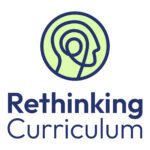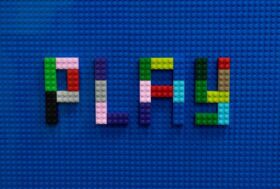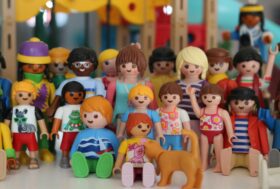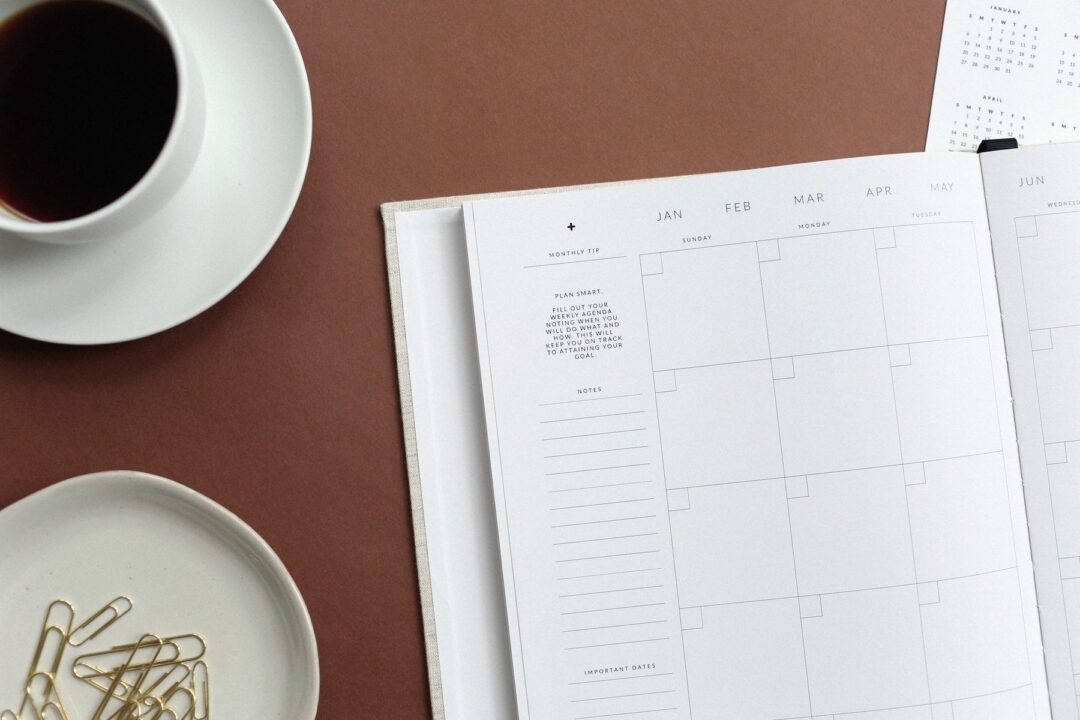Embedding Communication in Creative Learning in a Specialist Setting

This article has been published as part of the Rethinking Curriculum project, kindly funded by The Helen Hamlyn Trust.
Kari Anson, Headteacher at Brays School, Forward Education Trust, UK
Introduction
Brays School is a special school in Birmingham serving 91 children with profound multiple learning difficulties (PMLD), significant learning difficulties (SLD), physical disabilities, and complex medical needs. The primary curriculum is designed around a thematic approach enriched by a multi-sensory drama studio known as The Creative Space. This immersive environment has been a sustainable feature of our school for over 15 years, offering tailored multi-sensory drama (MSD) workshops that complement our curriculum and support holistic development.
The Creative Space at Brays School operates on a half-termly thematic cycle aligned with the wider curriculum, such as themes like “The Body” or “Egypt.” Each Friday, a dedicated ‘build team’ creates a multi-sensory immersive theatre environment, led by Creative Consultant, Harry Dawes. This environment is designed to provide rich, sensory experiences that engage children with profound and complex needs in meaningful play and exploration. Grounded in Early Years Foundation Stage (EYFS) principles, the workshops offer learners opportunities to explore through a range of schemas such as transporting and trajectory, supporting sensory regulation, cognitive development, and communication skills.
Harry Dawes provides teachers with detailed weekly overviews including learning intentions, context, and setup instructions supported by photographs. Each child is timetabled for a half-day session weekly in The Creative Space, where adults facilitate play and conduct observational assessments. The workshops evolve weekly within the theme but retain some consistent elements to allow repetition and consolidation, which aligns with research indicating that revisiting content through spaced and interleaved learning supports deeper understanding and mastery (DfEDepartment for Education - a ministerial department responsible for children’s services and education in England, 2023; OfstedThe Office for Standards in Education, Children’s Services and Skills – a non-ministerial department responsible for inspecting and regulating services that care for children and young people, and services providing education and skills, 2023). The Creative Consultant delivers workshops every Monday and leads a weekly reflective session with staff to review and adjust practice. Funded for three days per week on a rotating basis, this ensures all children access at least ten weeks of facilitated workshops annually. On other days, staff lead workshops using the consultant’s guidance and receive six-week training sessions to embed multi-sensory environment (MSE) principles into classroom practice, fostering staff development and sustainable pedagogy.
This approach reflects key recommendations from the DfE Reading Framework and Ofsted research emphasising the importance of reducing sensory barriers (e.g. noise reduction), providing rich communication opportunities, and embedding high-quality, repeated learning experiences that build foundational skills (DfE, 2023). It also aligns with the EEF’s emphasis on targeted, evidence-based interventions delivered by trained adults, which are essential for supporting children with speech, language and communication needs (SLCN) and closing attainment gaps, particularly for disadvantaged learners (EEF, 2023; DfE, 2025). The Creative Space’s model of combining specialist input with whole-school capacity building through CPD exemplifies best practice in embedding sustained, high-impact support.
Our pedagogical focus is on enhancing communication and interaction skills for children with SEND, particularly through the creative arts. The Creative Space has demonstrated significant benefits for social and emotional learning (SEL), with 2023 research showing skill development and evidence of transferThe processes of applying learning to new situations beyond MSD sessions. Building on this success, we are now focusing on aligning the Creative Space provision more closely with pupils’ Education, Health and Care Plan (EHCP) communication outcomes, ensuring measurable progress linked to individualised targets.
This enquiry is supported by research from Unwin et al. (2021), which highlights improved attention and communication in autistic students within multi-sensory environments (MSEs). It also responds to an identified need within our school: staff were not consistently linking children’s engagement in Creative Space activities to their individual IEP and EHCP targets. Addressing this gap is crucial to ensuring that the Creative Space has a demonstrable positive impact on pupils’ communication skills and overall outcomes.
Our approach is informed by the Ofsted Research Review Series on Music (2023), which emphasises the importance of reducing cognitive load, breaking down tasks, and combining learning modes to enhance clarity and accessibility for pupils with SEND. The report highlights that curriculum adaptations must be contextual, with high expectations and appropriate interventions tailored to individual strengths and needs.
An additional critical focus is the effective use of Pupil PremiumAdditional funding for publicly funded schools in England to raise the attainment of disadvantaged pupils of all abilities funding to ensure equitable access to the creative arts for all children, particularly those in receipt of Pupil Premium. At Brays, 32 per cent of our children are Pupil Premium recipients, and closing the attainment gap is a priority. Research indicates that engagement in the creative arts can foster communication, confidence, and broader personal development, which are key to narrowing disparities in outcomes (Ofsted, 2023; DfE, 2024). Our curriculum strategy aims to ensure that children receiving Pupil Premium achieve outcomes at least in line with their peers, using the Creative Space as a vehicle for inclusionAn approach where a school aims to ensure that all children are educated together, with support for those who require it to access the full curriculum and contribute to and participate in all aspects of school life and targeted intervention.
Curriculum and pedagogical approach
To enhance communication outcomes for children at Brays School, we introduced a targeted intervention deploying a specialist Teaching AssistantAn adult that assists a teacher in the classroom (TATeaching Assistant - an adult that assists the teacher in the classroom) with a Level 3 Speech and Language qualification into The Creative Space. Following pupil progress meetings, children who had not met their termly IEP communication targets were identified, and new SMART targets were set. Over a six-week period, the SALT TA worked closely alongside Creative Consultant, Harry Dawes, funded through the Pupil Premium budget, delivering direct communication-focused sessions and modelling to staff how to effectively use the MSE to support communication targets within a cross-curricular framework. The aim was to upskill staff in harnessing the MSE as a tool for teaching communication, thereby embedding this approach more widely across the school. Impact was evaluated by comparing pupil progress against communication and interaction targets, with a particular focus on Pupil Premium versus non-Pupil Premium children to assess equity in outcomes.
This approach is supported by research highlighting the benefits of multi-sensory environments for improving attention and communication in SEND learners (Unwin et al., 2021) and the importance of explicit, systematic instruction in communication interventions (Ofsted, 2023). The use of a specialist TA aligns with evidence from the ELKLAN framework (2025), which emphasises the value of trained communication practitioners in schools to enhance staff capacity and pupil outcomes . However, a limitation of this intervention is its reliance on a single dedicated member of staff; absence or turnover could disrupt continuity. Nonetheless, the TA’s ongoing ELKLAN Higher Level Communication Practitioner (HLCP) qualification represents a significant benefit, creating sustainable expertise within the school and supporting long-term capacity building.
Findings and implications
Pupil progress meetings following the six-week intervention showed a marked improvement in communication and interaction outcomes across the school. Specifically:
- 65% of communication targets were fully met,
- 30% were partially met,
- and only 5% were unmet.
This is compared to baseline data where just 28% of targets were met, 47% partially met, and 25% unmet. This demonstrates a significant positive impact on learning outcomes linked to the targeted intervention using a specialist SALT TA within the multi-sensory environment. However, the comparison between Pupil Premium and non-Pupil Premium children revealed a slight disparity, with non-Pupil Premium pupils outperforming in target achievement (28% vs. 23%). This suggests that while overall strategies are effective, there remains a need to close the attainment gap to ensure equitable progress for disadvantaged pupils.
These findings highlight the critical role of targeted, specialist-led interventions in improving communication skills for children with SEND, particularly in the context of limited NHS speech and language therapy provision. The positive impact on pupil outcomes supports research advocating for explicit, systematic communication support delivered within engaging, multi-sensory settings (Ofsted, 2023; DfE, 2023). The intervention underscores the importance of embedding specialist expertise within school teams to build capacity and sustain high-quality provision. However, the persistent gap between Pupil Premium and non-Pupil Premium pupils indicates the need for ongoing monitoring and tailored strategies to promote equity.
Recommendations
- Invest in ELKAN HLCP training – Given the increasing identification of children with SLCN and the shortfall in NHS provision, schools should consider investing in staff completing the ELKLAN HLCP This qualification has demonstrated impact beyond direct classroom intervention by enabling staff to identify and support children with SLCN who might otherwise miss out on timely support, and by fostering the development of high-quality communication provision across the school setting (ELKLAN, 2025). Schools could strategically use Pupil Premium funding to support this professional development, thereby addressing both capacity and equity challenges.
- Develop SMART target writing – Schools should implement further staff CPD focused on the writing of SMART targets to ensure communication goals are clear, measurable, and achievable. This will enhance the precision and effectiveness of planning and monitoring pupil progress.
- Broaden communication interventions – Evidence-based speech and language interventions recommended by the EEF (2023), such as targeted small group work and language-rich classroom environments, could be delivered by HLCP practitioners to extend the reach and impact of communication support.
Together, these combined approaches will strengthen whole-school capacity to meet the diverse communication needs of pupils, particularly those from disadvantaged backgrounds.
For further reading, see:
You may also be interested in reading this Impact article written by Farzana Chowdhury, Assistant Headteacher at Brays Special School, who expands on this case study, offering further insight into the implementation and impact of multi-sensory drama in this setting.
References
Chowdhury F (2024) Understanding the Use of Multi-Sensory Drama to Promote Social and Emotional Learning in Young People with Special Educational Needs and Disabilities. Master’s dissertation. [Birmingham City University]
Department for EducationThe ministerial department responsible for children’s services and education in England (DfE) (2023) The Reading Framework. Non-statutory guidance. Available at: https://www.gov.uk/government/publications/the-reading-framework (Accessed: 1 September 2025).
Department for Education (DfE) (2024) Initial Teacher TrainingAbbreviated to ITT, the period of academic study and time in school leading to Qualified Teacher Status (QTS) and Early Career Framework. Available at: https://www.gov.uk/government/publications/initial-teacher-training-and-early-career-framework (Accessed: 30 August 2025).
Department for Education (DfE) (2025) Using pupil premium: guidance for school leaders. Available at: https://www.gov.uk/guidance/pupil-premium-information-for-schools-and-alternative-provision-settings (Accessed: 1 September 2025).
Drama and Theatre (2024) The Creative Space – Drama Theatre Editors’ Award Winner 2024. Available at: https://www.dramaandtheatre.co.uk/content/features/the-creative-space-drama-theatre-editors-award-winner-2024 (Accessed: 15 September 2025).
Early Years Foundation Stage Statutory Framework (2025) Department for Education (DfE) (2025) Early Years Foundation Stage Statutory Framework for Group and School-based Providers. Available at: https://www.gov.uk/government/publications/early-years-foundation-stage-framework–2 (Accessed: 1 September 2025).
Education Endowment Foundation (EEF) (2023) Evidence-based interventions to support pupils with speech, language and communication needs. Available at:
https://educationendowmentfoundation.org.uk/education-evidence/teaching-learning-toolkit/speech-language-and-communication-approaches (Accessed: 30 August 2025
Education Endowment Foundation (EEF) (2025) The EEF guide to the Early Years Pupil Premium. Available at: https://educationendowmentfoundation.org.uk/news/new-guidance-to-help-early-years-settings-make-the-most-of-the-increase-to-the-early-years-pupil-premium (Accessed: 1 September 2025).
ELKLAN (2025) How the HLCP Award is Transforming Communication Support in Schools and Early Years. Available at: https://elklan.co.uk/Blog/How_the_HLCP_Award_is_Transforming_Communication_Support_in_Schools_and_Early_Years (Accessed: 30 August 2025).
Ofsted (2023) Research Review Series: Music. Available at: https://www.gov.uk/government/publications/research-review-series-music (Accessed: 30 August 2025).
Unwin K, Powell G and Jones C (2021) A sequential mixed-methods approach to exploring the experiences of practitioners who have worked in multi-sensory environments with autistic children. Research in Developmental Disabilities, 118, p.104061. DOI:10.1016/j.ridd.2021.104061











